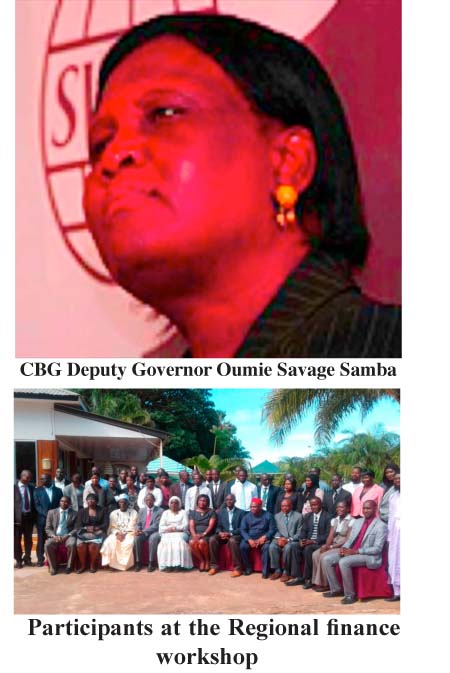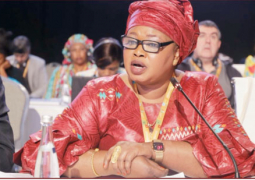
A
three-day regional workshop on Islamic Finance organised by the Committees for
Economic and Commercial Cooperation (COMCEC) in collaboration with the Central
Bank of The Gambia, is underway at the Baobab Holiday Resort in Bijilo.
The
regional workshop, which aims to improve the institutional framework for
Islamic finance, was held on the theme: “Islamic Finance for Regulators and
Practitioners”.
The
project funded by COMCEC, under project number 2015-Gamfinan-13, brought
participants from Nigeria, Sierra Leone and The Gambia.
Delivering
the opening statement on behalf of the Governor of the Central Bank of The
Gambia, the second deputy Governor, Oumie Savage Samba, said going by
experience in The Gambia, even though Islamic finance represents a small share
of the global finance market, the sector is growing “exponentially” and has
fundamentally transformed the financial landscape in several countries in Asia
and the Middle East.
“This
trend is expected to continue, driven in particular by strong economic growth
in countries with large, unbanked, Muslim populations,” she said.
According
to Mrs Savage Samba, data from the IMF indicates that Islamic finance assets
grew at double-digit rates during the past decade, from US$200 billion in 2003
to an estimated US$ 1.8 trillion in 2013.
However,
she said, despite this strong growth, Islamic finance assets are still concentrated
in the Gulf Cooperation Council (GCC) countries, Iran and Malaysia, and
represent less than one per cent of global financial assets.
The
potential of Islamic finance, especially in countries in Africa with
significant Muslim populations and low levels of Islamic finance penetration
“is no doubt huge”, she noted.
She also said to realise the potential of the
sector requires a multi-pronged approach and concerted effort from all players
in the value chain - the regulators, governments, private sector finance
companies (banks, insurance, microfinance and capital market operators),
entrepreneurs, purveyors of knowledge in Islamic finance and a broad financial
services consuming public.
Also
speaking on behalf of the permanent secretary at the Ministry of Finance and
Economic Affairs, was the deputy permanent secretary, Juldeh Ceesay, who said
the first phase of the project, which commenced in April 2015, was secured
through a joint application from the Ministry of Finance and Economic Affairs
and the Central Bank of The Gambia.
The
project focuses on enhancing Islamic banking literacy within the three
beneficiary countries, she said.
Mrs
Ceesay also said one of the key aims of the OIC is to foster strong links
within the Islamic world, adding that economic cooperation is seen as one of
the key facets for building such ties.
“This
belief spurred on the creation of COMCEC in 1981, with the central aim of
coordinating all OIC-wide economic activities.”
COMCEC’s
vision, she added, is geared towards building solidarity, interdependence,
mobility and good governance in OIC member states.
It
is also out to actualise this vision by promoting activities that help to
disseminate knowledge and best practices, in target areas that would help to
address the economic and social challenges prevalent within some OIC member
states.
“The
term Islamic Finance seems to imply that it is a form of finance that is targeted
solely at Muslims; this is, however, not the case,” she said, adding: “Islamic Finance is broadly governed by a set
of principles, which both Muslims and non-Muslims subscribe to.”
Islamic
Finance refers to the provision of financial services in accordance with
Shari’ah Islamic law, principles and rules, she continued.
“Shari’ah
does not permit receipt and payment of ‘riba’ (interest), ‘ghara’ (excessive
uncertainty), ‘maysir’ (gambling), short sales or financing activities that it
considers harmful to society,” she pointed out.
“Instead,
the parties must share the risks and the rewards of a business transaction.”



